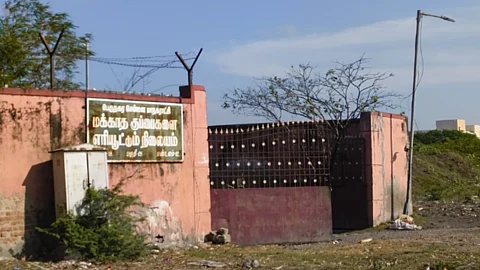

Soil samples collected near Chennai’s 10-tonne waste incinerator plant in Chinna Mathur, Manali, have alarming traces of heavy metals, a fact-finding report said. The report, jointly put together by several welfare groups, found metals such as lead, chromium and cadmium in quantities exceeding the World Health Organisation’s (WHO) permissible limits.
The fact-finding group also alleged that the incinerator plant, which has been operating since 2019, does not have approval from the Tamil Nadu Pollution Control Board (TNPCB). TNM had earlier reported that ash was being openly dumped on the land neighbouring the plant.
The heavy metals found in the ash are toxic to respiratory, renal, and skeletal systems and can affect the central nervous system, the report said. “The results of the soil sampling is only the tip of the iceberg and testing of the flue gas, leachate, and groundwater contamination could reveal the real impact which could be several times higher,” the report added.
The group which conducted the study consists of Non Governmental Organisations (NGO) and welfare groups like Visai, Poovulagin Nanbargal, Kodungaiyur Thozhargal, Global Alliance for Incinerator Alternatives (GAIA), Foundation for Friendly Environment and Medical Awareness (FEMA), Chennai Climate Action Group (CCAG), Centre for Financial Accountability (CFA), and lawyer Madhuvanthi Rajkumar. The report was published on April 1.
In March 2025, TNM visited the said incinerator plant and found that ash was being dumped on the land next to the waste-burning facility run by MAK Green Incinerator. Following our report, the fact-finding team collected soil samples from near the incinerator, and the lab results concluded that cadmium was 24 times over the WHO’s permissible limit of 0.8mg/kg, while lead and chromium are 1.2 times over the permissible limit of 85mg/kg and 100mg/kg respectively.
In addition, the fact-finding team has found that the 10-tonne incinerator in Manali does not have an operational permit from TNPCB. It was the Greater Chennai Corporation (GCC) that was supplying garbage to the facility, and the agreement on paper between MAK Green and GCC is that the ash generated from burning the garbage will be used to make paver blocks, which in turn will be used for laying roads in Chennai.
Despite having entered into such an agreement, the fact-finding group said that the GCC didn’t respond to their Right To Information (RTI) applications seeking information regarding legal permits granted to the incinerator plant. According to media reports, an official from the TNPCB has also said that the plant was not granted permission to operate.
It may be noted that Tamil Nadu had sanctioned 57 incinerators for the state, according to the 2021 annual report. Out of the 57, 19 incinerators were established, but the TNPCB did not consent to their operations since the Board couldn’t verify the technology being used.
“Interestingly, the TNPCB annual reports of 2023 and 2024 do not mention the existence of any incinerator within Tamil Nadu,” the fact-finding report noted.
Read: Chennai will soon burn 2100 tonnes of garbage everyday: How will this affect us?